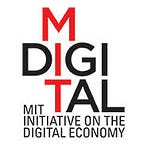Entrepreneurs Step Up to Global COVID-19 Challenges
Help ranges from healthcare worker support to aid for farmers and temporary job seekers
By Paula Klein
Home health care workers — among those on the front lines every day during the coronavirus outbreak — can access timely, critical information and advice on everything from face masks to unemployment insurance thanks to the efforts of CareAcademy. The online training and professional development organization quickly mobilized to help its overburdened U.S. agency and caregiver clients, and now is filling a much-needed void.
Across the world in India, COVID-19 has dramatically altered the hiring landscape. As in other parts of the globe, thousands have been laid off indefinitely and without compensation. People are panicked about where to find work, and entrepreneurs at Skillr, a skill-based hiring platform developed by LeapSkills, decided to do something about it.
Within 72 hours, the Skillr team created a digital job tracker of actively hiring companies and made the information public so that job-seekers in India have free and easy access to opportunities. “People are finding this tracker incredibly helpful,” said Ankit Durga, COO, of Leap Skills, a 2017 regional winner of MIT’s Inclusive Innovation Challenge (IIC). Since the launch on April 3, there were more than 45,000 visitors to the Skillr site and the crowdsourced tracker now boasts more than 1,115 hiring companies, with more added every day. “This month, perhaps even this year, it is more important than ever for us to be together online,” Durga said.
From Boston to New Delhi, and to rural farms in Peru, MIT IIC winners are proving that their innovation models are robust and work in real time.
New Directions
From 2016–2019 hundreds of IIC global entrepreneurs from more than 150 nations demonstrated timely solutions to real-world problems such as technical skill development and access, and economic inclusion. The IIC awarded more than $1 million each year to future of work pioneers that contributed to building a digital economy for all. The coronavirus pandemic abruptly sent these organizations — like businesses everywhere — into unexpected directions.
“At MIT, we believe that inclusive innovation — the use of technology to generate increased economic opportunity for moderate and low income earners — is well under way,” said Devin Cook, Executive Producer of the IIC. “These change-making entrepreneurs continue to make that vision a reality each day.”
In late March, for example, Helen Adeosun, CEO of Care Academy — the 2018 Global Grand Prize Winner in Skills Development and Opportunity — saw a need for remote webinars, roundtables, and up-to-the-minute information for home care agencies and workers facing unprecedented challenges. So far, three weekly webinars have had almost 5,000 views on topics from finding adequate medical resources, to caregiver training and remote care practices, she said. The sessions continue the professional development, education, and upskilling of CareAcademy’s clients.
The third COVID-19 roundtable discussion, for instance included legal, medical, and business community members discussing the continued impact of COVID-19 on home care agencies. The Academy also created a new class called, “Use of Masks for COVID-19: Guidance for Direct Care Workers,” for clients to access immediately or share with co-workers at no charge.
Enrollments in COVID-19 related classes topped 80,000 in less than a month of their release, according to Adeosun. “The most pressing questions are everything from when will things will get back to normal, to how to manage the disease when care workers and staff may be getting sick themselves. We see ourselves as part of the toolkit that may enable the workforce we serve.”
And in South America, last year’s IIC Technology Access Global Grand Prize Winner, Sinergia Tech, formerly AGROS, is launching a crisis program to help farmers in Peru. With many economic activities in the country frozen now, those in rural areas are most affected, said CEO Robinson Lopez Monzon. Sinergia applies remote sensing and precision agriculture technologies to reduce financial exclusion among small farmers.
Instant Job Placement Offers
Meanwhile, JobGet, last year’s IIC winner in the category of Income and Job Creation, wants to help Boston-area workers hardest hit by the virus. The Instant Placement Initiative, launched March 31, aims at restaurant workers in need of temporary employment. In addition, JobGet offered up to $5,000 in free posting for employers looking to hire on its marketplace app. Founder and CEO, Tony Liu, said the number of job seekers on the platform has doubled in the past month.
The locations and clients of these organizations are very different, but the goals of each are the same: Using inclusive innovation platforms to ease the impact of COVID-19.
In 2020, the IIC transitioned into MIT SOLVE where a Health Security and Pandemics Challenge was launched March 5. Through open innovation challenges, Solve finds and funds tech-based social entrepreneurs around the world. Submission deadline for this challenge is June 18. While scientists and drug developers are rushing to develop coronavirus vaccines and treatments, Solve aims to highlight existing innovations — like those from previous IIC winners — and help them scale.
